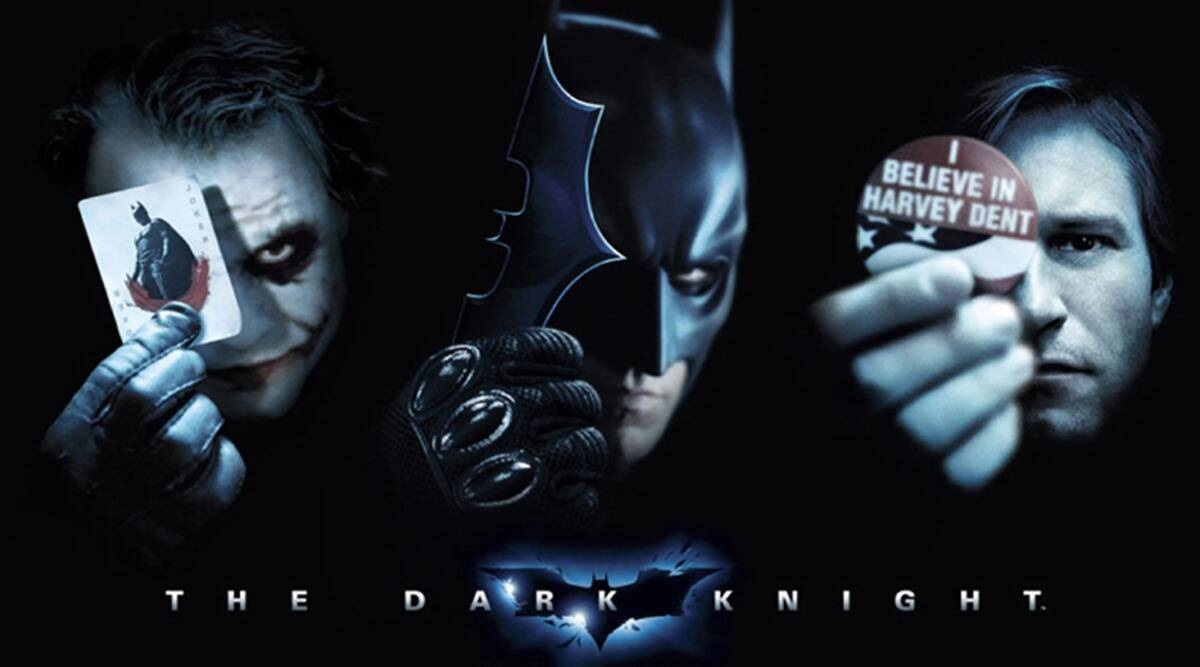Review: The Dark Knight
As it's rare for me to see a movie in the theater within a week of its opening, I thought I'd celebrate the occasion by posting some actual thoughts here on The Dark Knight. For the sake of not spoiling things, I'll try to refrain from plot details and instead focus on some of the mental gymnastics it takes to follow the movie.
This is a very complex film - the most of any superhero movie to date. A lot of folks raved about the emotional depth of the Spider-Man movies, but The Dark Knight asks questions that go far beyond Peter Parker's personal struggle in figuring out his responsibility to his power; as other reviewers have noted, The Dark Knight is a morality play that poses huge questions about the nature of humanity and asks the audience to share responsibility in answering them.
The dominant perspective is the Joker's. While Heath Ledger's performance is indeed intoxicating, what I think audiences are really responding to is Ledger's portrayal of the Joker's horrifying authenticity in living so consistently by his belief that anarchy is the only logical response to a world that does not make sense:
"Do I really look like a man with a plan, Harvey? I don't have a plan. The mob has plans, the cops have plans. You know what I am, Harvey? I'm a dog chasing cars. I wouldn't know what to do if I caught one. I just do things. I'm a wrench in the gears. I hate plans. Yours, theirs, everyone's. Maroni has plans. Gordon has plans. Schemers trying to control their worlds. I am not a schemer. I show schemers how pathetic their attempts to control things really are...Introduce a little anarchy, you upset the established order, and everything becomes chaos. I am an agent of chaos. And you know the thing about chaos, Harvey? It's fair."
The exception to the chaos, of course, is Batman (Christian Bale), who, though flawed, manages to make choices that go against his human nature. Still, Bruce Wayne (Batman's alter ego) wants out of the Batman business, as it seems the cause of - rather than the solution to - the problem of freaks like the Joker coming out of the woodwork. Eventually, Wayne comes to understand (with the help of Alfred and others) that a flawed Batman is better than no Batman at all, but it takes some time (and a little melodrama at the end) to reach that conclusion:
"Bruce: People are dying, Alfred. What would you have me do?
Alfred: Endure, Master Wayne. Take it. He'll hate you for it. But that's the point of Batman, he can be the outcast. He can make the choice that no one else can make, the righteous.
Bruce: Well today I found out what Batman can't do. He can't endure this. Today you finally get to say 'I told you so.'
Alfred: Today, sir, I don't want to."
Serving as a composite of sorts of the Joker and Batman is Aaron Eckhart's Harvey Dent, Gotham City's new District Attorney. Not much has been made of Eckhart's role in the film, but his seems the key to understanding the movie, particularly at the end after he becomes the coin-flipping, fate-tempting Two-Face. Up to that point, Dent represents an unblemished hope of law and order for Gotham City citizens ("a white knight" of justice as opposed to Batman's "dark knight" of vigilantism); however, between tragedy and timely coaching - both at the hands of the Joker - Dent resorts to playing the blame game with fate:
"You (Commissioner Gordon) thought we could be decent men in an indecent world. But you were wrong; the world is cruel, and the only morality in a cruel world is chance."
In many ways (and without trying to overanalyze things too much), The Dark Knight looks at the world through three lenses: the anarchy of the Joker (frightening in its degradation); the fatalism of Two-Face (depressing in its meaninglessness); and the brokenness of Batman (frustrating in its reality). One of these is how most of us tend to live life, and The Dark Knight provides an intriguing look at where and how these paths diverge and - when played out to their logical extremes - eventually end up. The question left for the audience to answer is, of course, which to choose?
Other observations:
Christopher Nolan's direction is seamless, well-paced, and engaging; you forget you're watching a movie.
Gary Oldman as Jim Gordon, Michael Caine as Alfred, and Morgan Freeman as Lucius Fox are always easy to watch; they bring acting credibility and great presence to the big screen.
Maggie Gyllenhaal is an improvement over Katie Holmes in the role of Rachel Dawes; the role itself, however, comes off more inspiring to the motivation of the romantically-involved characters (Wayne, Dent) than it really should, which doesn't ring as true as the rest of the film.
I don't think it's just because I've spent time there, but using Chicago as Gotham City was distracting; Gotham City needs a darker, more New York kind of feel.
The lack of dependence on CGI for many of the action scenes and stunts was refreshing and made the movie more realistic; there was really only one scene (the extraction in Hong Kong) that I felt required too much suspension of belief.
Though I always liked (a lot) the arrangements of the original Batman movie soundtrack by Danny Elfman, Hans Zimmer builds good suspense at just the right times; plus, I love the rich, bold sound of the trombones in his theme swells.
Overall the movie (2-1/2 hours) feels just a little long, but I'm not sure what I'd cut; it takes that kind of time to tell this kind of story.


